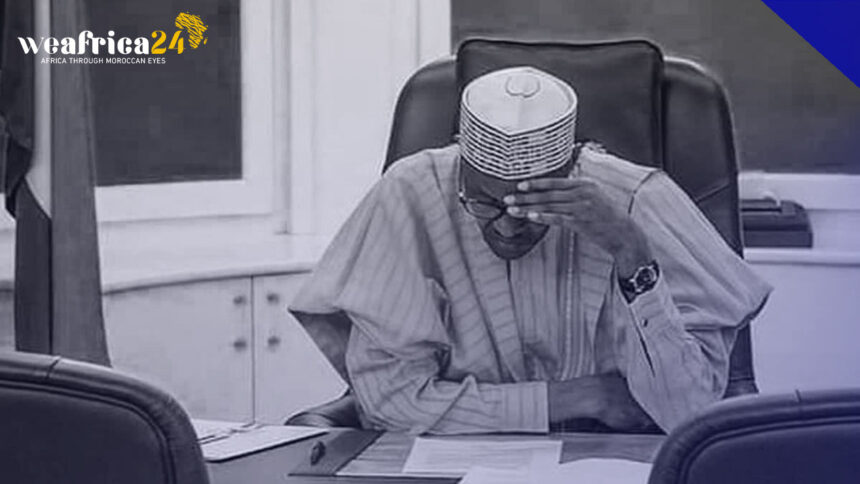In the history of elections of Heads of State, there are always promises and achievements. Achievements are the concrete and real assessment of the performance and output of a Head of State. It is the achievements that can confirm or not whether promises have been kept.
In Africa, it is evident that many presidents have been in power for years or several terms. At the end of each term, there are conflicting views on the success of a head of state in governance.
The case of Nigeria is the most flagrant and recent example of this divergence of opinion around the assessment of his achievements during his 8 years in power.
Has Muhammadu Buhari delivered on his promises?
Nigeria’s President Muhammadu Buhari, whose term of office will expire in 6 weeks, has always reiterated so far at home and abroad his achievements in governance and that the citizens would appreciate him after he leaves office.
This is not something new. Heads of state and government leaders, like Buhari, always try to show just the positive side of their stewardship, by highlighting projects completed during their tenure for instance.
Buhari has always claimed in his media appearances that he has boosted the economy, built infrastructure, controlled insecurity, and reduced corruption.
Several of his ministers have presented favorable accounts in the area of infrastructure, citing as examples bridges being rehabilitated, the construction of new railways, and others.
However, this remains a self-assessment. It is the voters who can decide and judge whether Buhari deserves another term or not.
The reality is far from being optimistic. Nigerians feel that Buhari’s actions and poor governance have hurt their daily lives and that he has not kept his promises.
His old-fashioned mode of governance is divisive in the country and has only deepened the problems of poverty, and insecurity and has led the country to bankruptcy.
The unfulfilled promises of politicians only feed the lack of confidence in them. This is universal. Several global polls have put distrust of politicians at over 60% in Britain, Australia, and the United States.
This trust deficit is clear in Nigeria and has grown under Buhari.
The different dimensions of Buhari’s failure
The area of security is Buhari’s worst failure because as a former army general, he always promised to make the country secure. Yet the security situation in the country has worsened during his tenure. The Boko Haram Islamist insurgency, the proliferation of small arms, ethnic clashes in some north-central states, the spread of jihadists, the burning and ethnic cleansing in the north-central states, kidnapping for ransom, piracy on the coasts, and the proliferation of criminals are revealing examples.
In the fight against corruption, statistics have revealed Buhari’s failure once again. Indeed, Nigeria is ranked 150 out of 180 countries in the Corruption Perceptions Index 2022.
Similarly, a Deutsche Welle report described the regime’s declared war on corruption as ‘hopeless’.
The government has never fulfilled the promise to move from a corruption-promoting ‘envelope’ budgeting system to needs-based planning.
In the economic sphere, statistics have shown once again that the promise to revive the economy was just that, a promise without any follow-up. Indeed, Buhari’s tenure has seen two major economic downturns, the degradation of the naira by over 800% and an increase in debt to N44 trillion. As a result, unemployment has reached a disastrous level of 33.3%.
In terms of governance, Buhari was always on the move and unavailable to give instructions to the government which is on autopilot.
In January 2019, a civil rights group, Mandate Protection Vanguard, listed 62 promises made by Buhari in the previous period and deduced that none of the promises were kept.
Beyond his glaring failure, what has he achieved?
Buhari has, however, managed to revive the Ajaokuta Steel Company, produce 20,000 megawatts of electricity, build highways, rehabilitate railways, modernize hospitals, allocate 20% of the budget to education, and reduce maternal mortality by 70%, and carry out reform in the judicial system.
Buhari apologizes to the people, The simplest way to make people forget his failure
Aware of the negative impact of his policies on Nigerians, Muhammadu Buhari (retd), on Friday apologized to the people.
Muhammadu Buhari thanked the people for “tolerating” his 8-year rule since he assumed office as Nigeria’s president in 2015.
The Nigerian president asked for forgiveness and bid farewell when he received a limited number of guests at Sallah’s ninth and final tribute.
Buhari, therefore, expressed that he was fortunate to have served in several positions: governor, minister of petroleum, head of state, and then he had the opportunity to serve the country as president.
Muhammadu also asked for forgiveness from those who think he has damaged them, arguing that to be wrong is human.
On his plans to retire, Buhari said he prefers to retire quietly to his hometown (Daura, Katsina) and stay away from partisan politics for a while. He has adopted a persuasive speech targeting the sentiments of the citizens when all arguments have become obsolete with the crisis facing the country.







